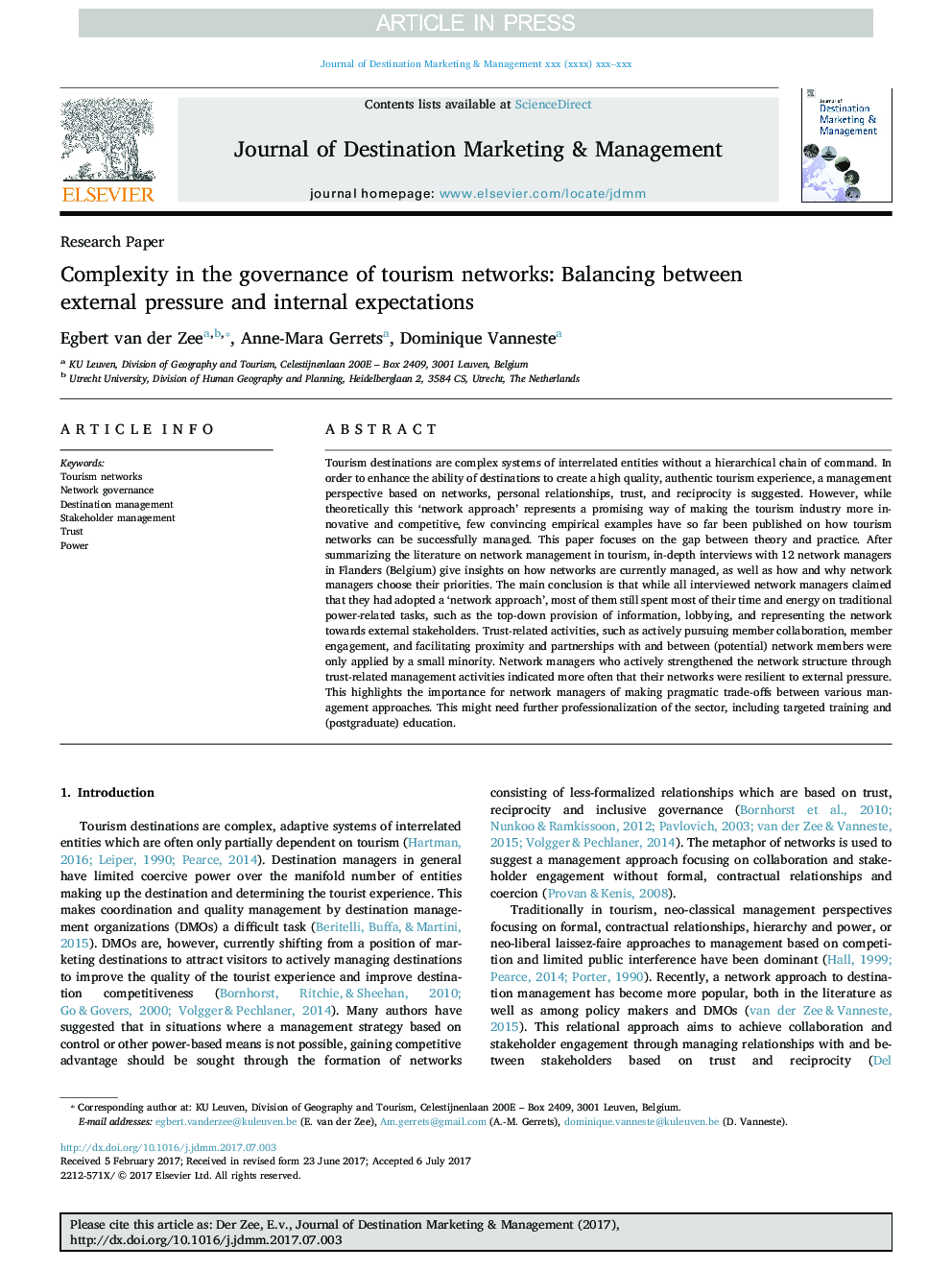| Article ID | Journal | Published Year | Pages | File Type |
|---|---|---|---|---|
| 7419738 | Journal of Destination Marketing & Management | 2017 | 13 Pages |
Abstract
Tourism destinations are complex systems of interrelated entities without a hierarchical chain of command. In order to enhance the ability of destinations to create a high quality, authentic tourism experience, a management perspective based on networks, personal relationships, trust, and reciprocity is suggested. However, while theoretically this 'network approach' represents a promising way of making the tourism industry more innovative and competitive, few convincing empirical examples have so far been published on how tourism networks can be successfully managed. This paper focuses on the gap between theory and practice. After summarizing the literature on network management in tourism, in-depth interviews with 12 network managers in Flanders (Belgium) give insights on how networks are currently managed, as well as how and why network managers choose their priorities. The main conclusion is that while all interviewed network managers claimed that they had adopted a 'network approach', most of them still spent most of their time and energy on traditional power-related tasks, such as the top-down provision of information, lobbying, and representing the network towards external stakeholders. Trust-related activities, such as actively pursuing member collaboration, member engagement, and facilitating proximity and partnerships with and between (potential) network members were only applied by a small minority. Network managers who actively strengthened the network structure through trust-related management activities indicated more often that their networks were resilient to external pressure. This highlights the importance for network managers of making pragmatic trade-offs between various management approaches. This might need further professionalization of the sector, including targeted training and (postgraduate) education.
Related Topics
Social Sciences and Humanities
Business, Management and Accounting
Business, Management and Accounting (General)
Authors
Egbert van der Zee, Anne-Mara Gerrets, Dominique Vanneste,
